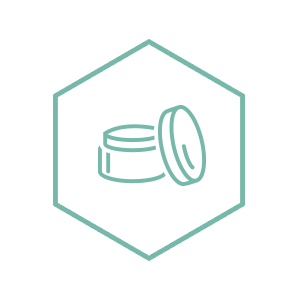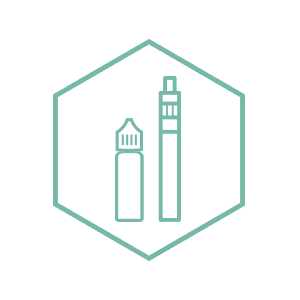One of the most valuable words in the medical cannabis glossary, that all patients need to understand, is cannabinoid. Cannabinoids, like CBD and CBG, are organic chemical compounds that, with terpenes, make up the building blocks of the cannabis plant. Translating into medicinally valuable relief, cannabinoids have been widely used in the treatment of conditions such as cancer, seizures, and Parkinson’s disease and symptoms such as inflammation, pain and nausea. Some of the top cannabinoids are:
Cannabidiol, or CBD, is the non-psychoactive cannabinoid which could significantly reduce symptoms in patients suffering from seizure and spasm disorders such as epilepsy and multiple sclerosis. CBD is the cannabinoid most often recommended for children, elderly and other patients who must remain clear-headed in their activities because it is non-psychoactive, meaning it will not give the feeling of being “high.” CBD reacts with cannabinoid receptors throughout the human body, and may relieve inflammation and pain while producing a calming-effect in patients.
Total Health Co. is a Michigan based company
Cannabidivarin (CBDV) is a cannabinoid that will not cause the feeling of being “high.” It is found more prevalently in indica strains that are lower in tetrahydrocannabinol (THC). Like CBD, CBDV may significantly reduce the frequency and severity of seizures. It also may reduce or even eliminate the nausea associated with several conditions, and may help to reduce inflammation throughout the body. CBDV could also be beneficial in the treatment of pain and mood disorders.
Cannabinol, or CBN, is a non-psychoactive cannabinoid that can be used as a sleep aid or sedative. CBN could also help regulate the immune system, and may relieve the pain and inflammation caused by several conditions.
Cannabigerol, or CBG, is a non-psychoactive cannabinoid typically most abundant in low-THC, high-CBD cannabis strains. CBG reacts with the cannabinoid receptors by working to alleviate the paranoia sometimes caused by higher levels of THC.
THCV, or tetrahydrocannabivarin, is a cannabinoid that holds potentially potent psychoactive effects, along with a host of medicinal benefits. Products rich in THCV may result in a stimulating, clear-headed, almost psychedelic type of energetic high that is typically shorter in duration. Functionally, THCV holds appetite suppressing effects, which make it a possible weight loss supplement and potentially beneficial to diabetics by aiding in the regulation of blood sugar levels. THCV may also play a role in stimulating bone growth, which could help osteoporosis. THCV displays anticonvulsant properties that may help with spasticity, neurodegenerative, and seizure related disorders. THCV may combat anxiety and panic attacks, with potential use for those who suffer from PTSD.
Tetrahydrocannabinolic acid (THCA) is the most abundant non-psychoactive cannabinoid found in cannabis. THCA may work to relieve inflammation and pain, and could be an ideal cannabinoid for treating symptoms of such conditions as arthritis, seizures. Recently, research shows that THC-A may help slow the growth of certain cancerous cells.
Tetrahydrocannabinol, or THC, is the most well-known and most often the most prevalent cannabinoid found in cannabis. This is the psychoactive component known to produce euphoria, which is more often described as the feeling of being “high.”
A wide variety of consumption methods exist. Recently, with advancements in hemp extraction technologies, a new form of concentrated resin has been developed as well as concentrated forms of CBD’s that can be ingested orally, mixed with topical lotions and applied to the skin. You can truly take a tablet that contains a very precise and consistent dose of CBD, such as a tablet with 5mg of CBD.
CBD may have a wide range of medical benefits without the harmful side effects of pharmaceutical drugs.
Each person can feel the effects of an edible differently. The metabolism of the person plays a large role in the amount of time it takes for an edible to take effect. Typically, it can take anywhere from 20 minutes to two hours or longer.
The effects generally peak four hours after ingesting, so it’s best to wait at least that long before consuming more. 5mg-10mg is considered to be a dose – which may be just right for some, too much or not enough for others. Take your time and learn what’s right for you, and always pay attention to the label for dosing and recommended serving size.
Here is a quick rundown of the most common forms of consumption and the CBD forms for each:
Total Health Co. Michigan has all the highest quality hemp CBD products and accessories, from gummies, to vape pens and a wide variety of edibles and tablets. Check out our wide selection of products and contact us today for more details.



